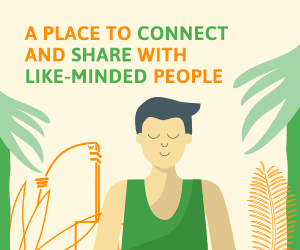If you regularly struggle with making choices, you could be living with so-called 'decision fatigue'. Psychologist Stanislava Puač Jovanović explains how to tackle indecisiveness with seven practical techniques, so you can move forward with your life.
It’s normal to be indecisive every once in a while, especially if you’re about to make a meaningful, life-changing decision. However, if you find yourself frequently agonising over the most straightforward choice such as picking spaghetti or pizza, there might be something else lurking behind your indecisiveness.
I bought my apartment without even seeing it in person. I was simply too psychologically exhausted from unrelated demands and decisions I was making each day. I couldn’t bring myself to ponder over what’s nearby, whether there’s an elevator in the building, and which side of the world the bedroom is facing. So, I went for the first ad I came across that seemed remotely fine and fitted my budget. True story. Luckily, it’s a great apartment, and I didn’t regret it. However, it might have also been one of the worst decisions I had made in years.
How is this relevant? When you can’t make decisions (or can’t be bothered to), there is likely to be a hidden reason behind it. The good news is that there are also ways you can overcome it. This article will help you understand indecision, why it happens, and how to try and avoid making bad choices.
Struggle with indecisiveness? You could have decision fatigue
There are plenty of reasons why a person might be indecisive. Some are related to the decision itself, such as a lack of information. However, many are not. We’ll concentrate on the latter because that are the reasons that could, ironically, make decisions about your life for you.

The path to freedom: learn how to be less indecisive
Emotional disturbances
Indecision could be a symptom of an emotional disturbance. Depression, in particular, is tied with a negative outlook on the future, our own worth, and the intentions and character of others. Additionally, motivation is often non-existent. A depressive person will, therefore, have a hard time making any choice whatsoever – or wanting to make one.
RELATED: The time is now: how to stop worrying about the future
Indecision can also stem from anxiety. An anxious person might be at an advantage in terms of making sure that they have enough information before deciding on something. However, anxiety (and, similarly, high neuroticism) mostly results in being unable to make up one’s mind beyond any practical reason. It causes overwhelming fear of making the wrong choice and not being capable of coping with it. The dread of hurting, alienating, and disappointing others could also be too much to bear. So, indecision becomes a sort of a defence mechanism.
Dysfunctional beliefs
We’re all tangled up in a myriad of beliefs about ourselves, others, and the world. Some are accessible to our conscious examination. However, some escape our critical analysis. Those are usually the ones we embraced as a part of ourselves when we were very young and never got to question them again.
Dysfunctional beliefs meddle with our career choice, romantic relationships, or any other decision, for that matter. Convictions about how things should be could make us either procrastinate or, on the other hand, make rash decisions. Perfectionism is a textbook example of a creed that often causes severe indecisiveness.
“There are plenty of reasons why a person might struggle with indecisiveness. Some are related to the decision itself, such as a lack of information. However, many are not.”
Nowadays, we have more options than ever before in human history. We get to pick (or be a part of the decision about) almost every aspect of our day-to-day living. In fact, researchers at Cornell University found that we are making an average of 35,000 remotely conscious decisions each day. That’s a lot of opportunities to get it wrong. And it’s exhausting.
With this, we reach an interesting source of wavering or being paralysed when we stand facing a decision. When we are indecisive, we might be ego-depleted. According to Roy Baumeister, a social psychologist who extensively examined this phenomenon, our willpower comes in limited supply. With each choice we make, we drain a bit of this resource.
Bear in mind that we’re not only making choices between different meals, careers, or towns to live in. We are, daily, also choosing to suppress our basic, low-lying urges. We decide to replace them with higher-order, more responsible choices favouring long-term benefit. Yet, as a result, we end up experiencing decision fatigue. We then tend to procrastinate, go for the easiest option, act impulsively, or rely on rules of thumb.
Can’t make decisions? Here are 7 strategies that work
The consequences of being indecisive often go beyond missing a train because you weren’t sure if you wanted to go left or right. They stretch much further and can cause innumerable trouble. Indecision could make you act irrationally. Your career, personal relationships, health, and your overall well-being could suffer. So, discover these seven tried and tested ways you can overcome indecision and avoid its adverse consequences.
1. Make important decisions early in the day
Decision fatigue usually happens at the end of a decision-riddled day. You probably know the horror of deciding what to have for dinner after you’ve spent ten hours at work, making critical judgments. Now, a dinner choice is a relatively insignificant matter. However, if it were the ruling on whether to move, marry, or change a career, decision fatigue could, potentially, mess up your life. So, make sure that you leave the (expected) significant decision-making for the morning, when you’re rested and clear-minded.
2. Routinize the banal choices
Some of the most successful people have a curious habit. You might have noticed that Obama, Zuckerberg, or Steve Jobs wear (wore) pretty much the same clothes. They've all explained that they need not waste their time and energy on deciding what to eat or wear every day. So, take a page out of their book. Routinise the unimportant decisions as much as you can. Commit time to make healthy choices just once, such as which food you’ll eat, what clothes you’ll wear and when you’ll exercise. Then make them a routine. That way, you leave plenty of willpower and psychological energy for the important and less routine decisions.

Can't decide? Go with your gut! shutterstock/Taisiya Kozorez
3.Don’t make decisions on an empty stomach
It may sound odd, but there’s scientific proof of this old decision-making wisdom: don’t make big decisions on an empty stomach. The appetite-increasing hormone ghrelin can hinder your ability to make a right call. Findings from several experiments revealed that we’re better equipped to make (proper) decisions when we’re not low on glucose levels. Simply put, with every decision we make, we use some of our energy. And it needs to be replenished if you want to make judgements with your full capacity.
4. Pros and cons lists and other tools
A tested way of analysing your options is to make a pros and cons list. It’s a simple but effective means of taking control of the chaos in your mind when facing a decision. It’s also an excellent way to make sure you’ve covered it all and get rid of the anxiety. In addition to this technique, you can also utilise other tools, such as SWOT analysis, or journaling, to address the unhelpful beliefs you may have.
5. Go with your gut
Even though it might sound irrational, intuition may, in some cases, be your go-to method of making a choice. Intuition, as a psychological construct, is nothing ethereal or mystical. It’s also not to be confused with impulsiveness, which is guided by an urge for immediate satisfaction of emotional or other needs. Intuition is based on expertise and can be a great way of making decisions when speed is crucial, such as in business or healthcare.
“Recognize that some decisions you will make may not work out, and that's OK. You will manage. Get support when you need it – and keep moving forward.”
6. The 10/10/10 rule
The 10/10/10 rule, proposed by Suzy Welch, a business writer, is a fast and effective tool to use when you need to put your decision into perspective. So, when you can’t tell if your decision is the right one, simply ask yourself these three simple but insight-evoking questions:
How will I feel about it 10 minutes from now?
How about 10 months from now?
How about 10 years from now?
Your answers should help you get a feel for making a well-informed choice.
7. Face your fears and move forward
Yes, life is daunting. And yes, we’re often burdened with unhelpful beliefs about it. However, most of our concerns are irrational. And we also have a much greater capacity to overcome problems than we realise. So, recognize that some decisions you make may not work out, and that's OK. You will manage. Get support when you need it – and keep moving forward.
Decide not to be indecisive
Indecision doesn’t merely affect you before the decision is made. It was found to cause post-decision dysfunctional behaviour, such as worry, as well. In other words, the effects of being indecisive don’t end with you picking an option. It can linger with you much longer than that. You might also get used to giving the power to others, or become a conformist, which are rarely optimal options.
Break free from indecisiveness and its influence on your life. Start by making this resolution – not to be indecisive anymore! ●
Main image: shutterstock/fran–kies
Written by Stanislava Puač Jovanović
 Stanislava Puač Jovanović has a master’s degree in psychology and works as a freelance writer and researcher in this area. During her early career, she gained several certifications (life coach, assertive communication trainer, peer educator, fitness instructor). Her primary focus is on questions relating to mental health, stress-management, self-development and well-being.
Stanislava Puač Jovanović has a master’s degree in psychology and works as a freelance writer and researcher in this area. During her early career, she gained several certifications (life coach, assertive communication trainer, peer educator, fitness instructor). Her primary focus is on questions relating to mental health, stress-management, self-development and well-being.





Join the conversation
You are posting as a guest. If you have an account, sign in now to post with your account.